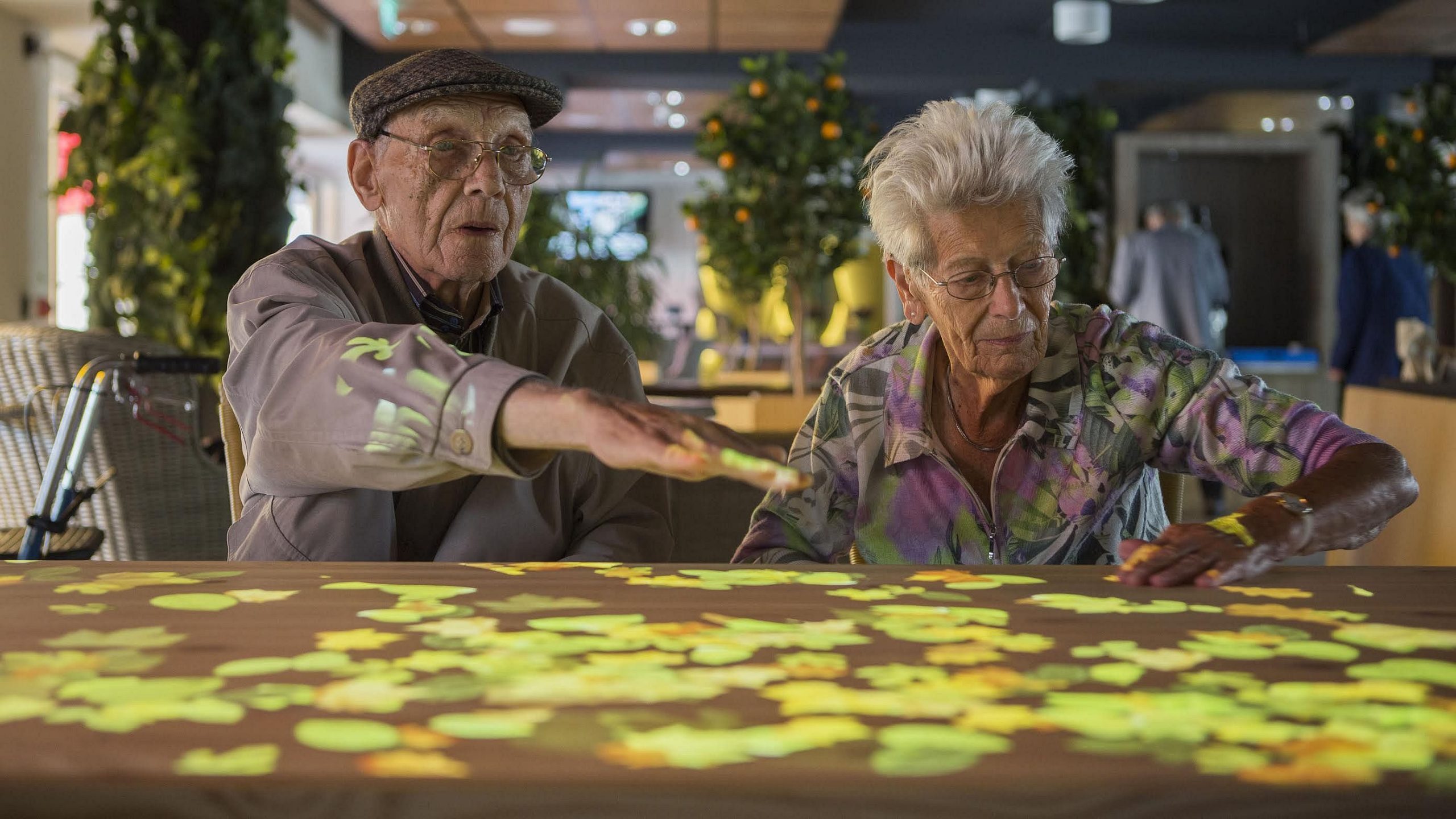An interactive game that provides stimulation for people with dementia or other mental disorders has turned into a business, Active Cues, with over 30 employees.
Initiator and PhD candidate Hester Anderiesen-Le Riche will defend her PhD thesis next Monday March 24 2017. Anderiesen developed the interactive game in the Persuasive Game Design research group at the Faculty of Industrial Design Engineering (IO). She conceived and developed the game Tovertafel (magic table) to improve the quality of life for people with dementia. Anderiesen believes that people with dementia need stimulation, but often lack staff or family members that can interact with them the whole day. “The Tovertafel offers a playful way to stimulate physical activity and social interaction with minimal guidance,” Delta wrote in an earlier article.
Suspended box
So how does it work? Just choose any table to be the Magic Table. The magic is in a box suspended above the table that houses a projector and infrared sensors. The sensors detect hand and arm movements and the projector shines colourful light animations on the table, be it flowers, lilies, goldfish or butterflies. As the projected objects move over the table, they invite people to the table to interact.
“It turns out the Magic Table can reduce apathy in people in the middle to late stages of dementia by stimulating physical activity and social interaction,” said Anderiesen in the TU Delft press release.
It is a commercial success as well, with around 1,000 Magic Tables sold in four countries. The company Active Cues has developed special versions for mentally disabled people (only in Dutch) and children with autism.
- H. Anderiesen, Playful design for interaction, PhD thesis supervisor Prof. Richard Goossens and Dr. Marieke Sonneveld, March 24 2017. ·
- Hester Anderiesen, Erik J.A. Scherder, Richard H.M. Goossens and Marieke H. Sonneveld, ‘A systematic review – physical activity in dementia: The influence of the nursing home environment’, Applied Ergonomics, Volume 45, Issue 6, November 2014, Pages 1678–1686



Comments are closed.